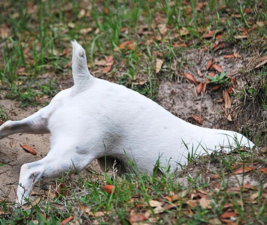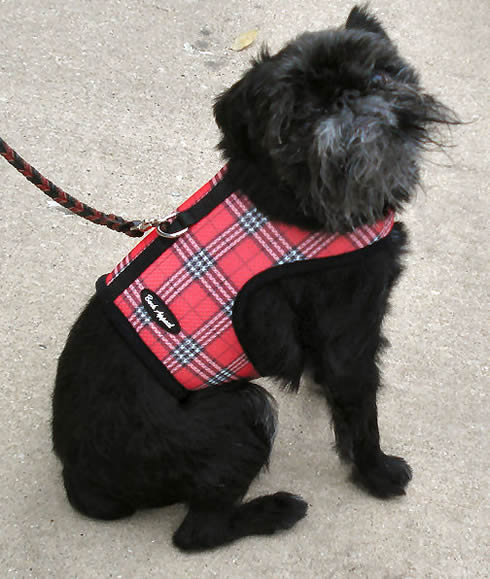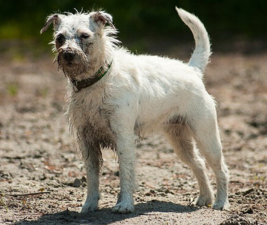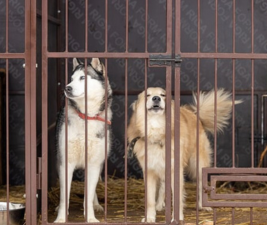There are lots of ways that dogs are inconvenient. They dictate your schedule from the time you wake up to how long you can be away. There’s no such thing as spur-of-the-moment get-aways. But if you’re here, you probably agree with us that dogs are totally worth the time, bother, and effort. Even so, ideas to make dog life easier are always welcome. These are three of the things that we’ve found to reduce the joyful chaos and entertaining mayhem of living with our four hooligans.
Idea #1
Get a scratch board. We never even heard of them until a few months ago, so we’re betting that many people are in the same boat. It’s a way to get your dogs to help out with keeping their nails short. Most have a slanted board with a sandpapery top. Your dog just scratches on the board to keep their nails short and smooth. Some of them even have a compartment to hold treats, giving your dog motivation to scratch at it.
If your dog has a tendency to dig and use their paws, you won’t even have to do much training to get them to use a scratch board. We’ve always had to use an emery board after clipping our dogs nails because we didn’t like how sharp they were after trimming. With the scratch board, that step isn’t necessary.
There are lots of different shapes and sizes of scratch boards, at many different prices. We don’t have a specific recommendation for you, aside from checking them out.
Idea #2
Keep a package of baby wipes by the door your dogs go in and out. From eating dirt (Booker), to scratching in the mud (Simon), to not-quite-finished with business (depends on the day), they’re worth it. We choose a hypo-allergenic, unscented variety, but there are many choices available.
If you have a fuzzy dog, the wet wipes may not be your best choice. A useful hint we learned from a friend with Keeshonden is to keep a shaker can of cornstarch around. And a slicker brush. That way if anything gets stuck to your dog’s fur, you can dry it quickly and brush it out.
Both baby wipes and the cornstarch make it easy to clean up after your dogs go out. It’s certainly made taking the dogs out in the rain a less-dreaded chore.
Idea #3
Attach some hooks near the door for your dog’s collar or harness and leash. They don’t stick out too much if the space is tight, and you can easily grab the right dog’s stuff if you have a separate hook for each dog.
Our crew doesn’t have the habit of chewing on leashes. Not even leather ones. But if your dog does, either loop the leash so your dog can’t reach it. Or use a shelf instead of a hook, if you have somewhere to put it.
If you’re not handy, or don’t want to mar your walls, you can get an over-the-door hanger to keep your dog’s harness and leash. You can find them in any closet department.
We hope you and your dogs have a happy, healthy, and less-hassled 2024. Happy New Year from all of us at Golly Gear.
Enjoyed this post? Click here to sign up for the weekly newsletter and never miss another!












